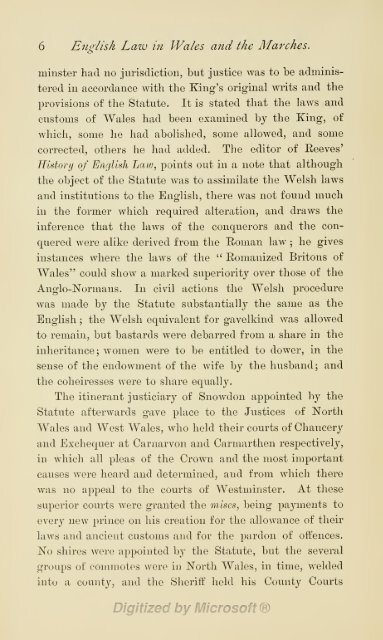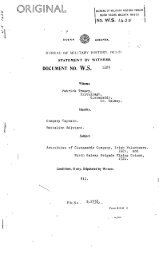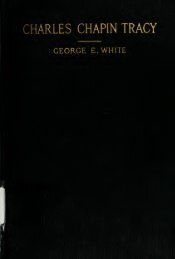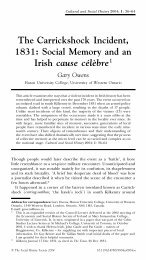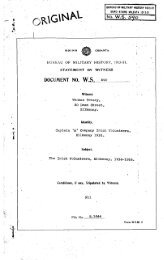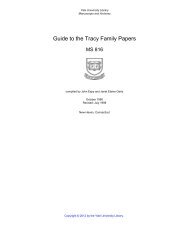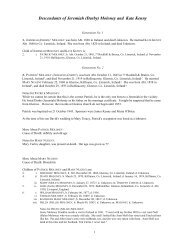Y Cymmrodor. v. XIV. 1901.
Y Cymmrodor. v. XIV. 1901.
Y Cymmrodor. v. XIV. 1901.
You also want an ePaper? Increase the reach of your titles
YUMPU automatically turns print PDFs into web optimized ePapers that Google loves.
6 English Law in Wales and the Marches.<br />
uiinster had 110 jurisdiction, but justice was to be adniinis-<br />
tered in accordance with the King's original writs and the<br />
provisions of the Statute. It is stated that the laws and<br />
customs of Wales had been examined by the King, of<br />
which, some he had abolished, some allowed, and some<br />
corrected, others he had added. The editor of Reeves'<br />
History of English Law, points out in a note that although<br />
the object of the Statute was to assimilate the Welsh laws<br />
and institutions to the English, there was not found much<br />
in the former which required alteration, and draws the<br />
inference that the laws of the conquerors and the con-<br />
quered were alike derived from the R-oman law ;<br />
he gives<br />
instances where the laws of the " Romanized Britons of<br />
Wales" could show a marked superiority over those of the<br />
Anglo-Normans. In civil actions the Welsh procedure<br />
was made by the Statute substantially the same as the<br />
English ;<br />
the Welsh equivalent for gavelkind was allowed<br />
to remain, but bastards were debarred from a share in the<br />
inheritance; women were to be entitled to dower, in the<br />
sense of the endowment of the wife by the husband; and<br />
the coheiresses were to share equally.<br />
The itinerant justiciary of Snowdon appointed by the<br />
Statute afterwards gave place to the Justices of North<br />
Wales and West Wales, who held their courts of Chancery<br />
and Exchequer at Carnarvon and Carmarthen respectively,<br />
in which all pleas of the Crown and the most important<br />
causes were heard and determined, and from which there<br />
was no appeal to the courts of Westminster. At these<br />
superior courts were granted the mises, being payments to<br />
every new prince on his creation for the allowance of their<br />
Laws and ancient customs and for the pardon of offences.<br />
No shires were appointed by the Statute, but the several<br />
groups of coinmotes were in North Wales, in time, welded<br />
into a county, and the Sheriff held his County Courts


